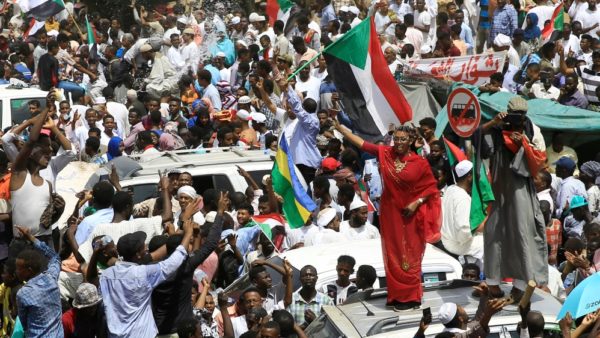
Statement of the African Studies Association Concerning Freedom of Expression in Sudan (June 2019)
The African Studies Association reiterates its solidarity with its academic colleagues in Sudan and condemns in the strongest terms the violent crackdown of the Transitional Military Council in Sudan on peaceful protesters during its attack on the sit-in outside military headquarters on June 3rd. According to estimates by the Central Committee of Sudanese Doctors this crackdown resulted in the violent deaths of over a hundred Sudanese protesters, many of whom came from the ranks of doctors, students and professors with whom our members have had long professional relationships.
A full account of the attack is not yet known due to the Sudanese government’s attempts to silence protesters, both by raiding press agencies like Al Jazeera and blockading the internet across the country. Yet it is clear that the Rapid Support Forces, a force represented on the Transitional Military Council, attacked the sit-in at 5 a.m. on June 3rd, shot live ammunition at protesters, and killed over one hundred people, injuring roughly seven hundred, and sexually assaulting at least five. These attacks extended far beyond the sit-in itself: RSF forces proceeded to gather the bodies of those killed and threw them into the Nile. They surrounded hospitals where wounded protesters were taken and shot ammunition inside of them. They attacked the University of Khartoum, rifling through offices and stealing university property. These attacks were a coordinated effort to stifle the mass movement that Sudanese protesters have participated in since December of 2018, calling first for the ouster of President Omar al-Bashir, then a transition to a civilian government.
Since the attack, the Sudanese government has undertaken an extensive crackdown designed to stifle further dissent. The internet has been blocked across the country, and the RSF has undertaken terrorizing patrols, at times escorting workers on strike to their place of work at gunpoint.
Academics in Sudan have been at the forefront of these protests as members of the Sudanese Professionals Association. Academics, alongside their students, have attended the sit-in and protests, and academics, alongside their students, are now mourning the loss of protesters—some of whom they had taught six months ago. We stand in solidarity with them as they fight to exercise their freedom of expression. Moreover, we call on our governments to pressure the Transitional Military Council to refrain from further violence and commit to a peaceful transition to civilian rule. We also ask the United States and the rest of the International Community to continue to follow the lead of the African Union in demanding that the military regime in Sudan allow a civilian government to come to power in Sudan.









COMMENTS -
Reader Interactions